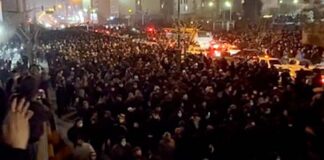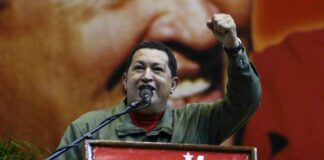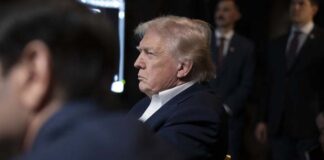Review: A Military History of Australia
Jeffrey Grey, Cambridge University Press, RRP $39.95
With the “War on Terror” the watchword of the Howard era, there have been a plethora of books on the Australian military. Some are just recruiting tools for the Defence Forces, some are trying to cash in and some will give you an insight into the thinking of the ruling class.
Jeffrey Grey’s updated third edition of “A Military History of Australia” would seem to be a good starting point for the latter.
As a colonial settler-state, an out post of the British empire in Asia, Australia’s relationship to the “mother country” has always been key to its national identity and role in the world.
Economic viability and military dependence have been twin themes. Once wool and gold were established as export commodities, the military question became a key feature of Australian nationalism.
Grey does not even discuss the key formative event in Australian nationalism—the New Hebrides [Vanuatu] Crisis of 1886. That year France sought to annex the islands, while the British showed only disinterest. The separate colonies spoke with an Australian nationalist voice to press Britain over the New Hebrides.
As a local ruling class emerged so did a tension between those who wanted to put “defence” of Australia first and those who saw “defence” linked to the umbrella of the British empire.
With the decline of the British empire in the 1940s and 1950s the need to be linked with an empire saw a transfer of allegiance to the US.
So you would think Grey’s book could begin to address these debates in a cogent fashion. Instead, he crams in facts, some noteworthy and many not, to the point of the mind-numbingly tedious. You have to wade through piles of rubbish to find the occasional gem.
As an outpost of the British empire, Australia was always rushing off troops to the defend the empire worldwide, from Sudan in 1885 to Malaya in the 1950s.
Grey admits that “Neither ALP or conservative governments [in the interwar years] saw a primary role for the army in the defence of Australia.”
He wants the Australian army to continue to “project and sustain forces at a distance beyond our shores.” So does Australia’s Defence Force defend Australia? According to Grey, it needs to go overseas “in defence of our national interests.” Most workers don’t have overseas interests, so we are talking about the interests of BHP, Rio Tinto, Woodside, Worley-Parsons, the big four banks and other blue chip companies.
“War and military service have been among the great defining influences in our history”, effuses Grey, so you know where this book is heading.
One factual clanger that Grey comes up with is that, “Despite having no automobile industry before the war [WW2], Australia even produced a tank prototype.” As an academic interested in facts, Grey could have easily found out that Ford and GM-Holden existed in the 1920s in Australia.
The military have played a disproportionate role in Australia’s history, and this book revels in the gore of war and disparages those opposed to war and conscription.
Building a movement against the “War on Terror” can write a new chapter on anti-militarism in this country.
By Tom Orsag





